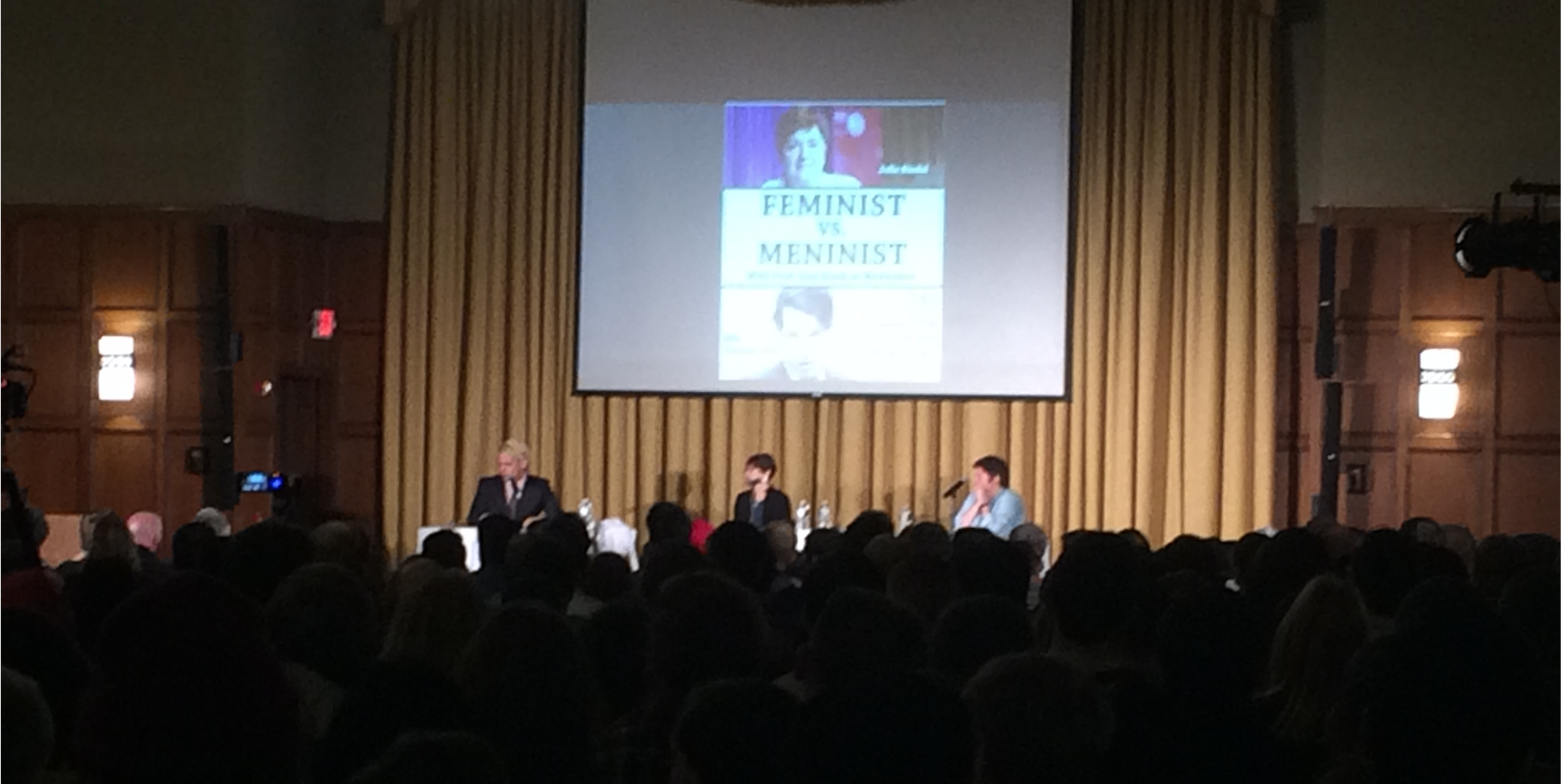For those open to challenging ideas, Milo and Julie proved worthy opponents, both consistently drawing applause and questioning the assumptions of the audience. In the end, the real winner was free speech as the event demonstrated the commitment of the campus community to open exchange and disagreement.
On the evening of Tuesday February 23, provocateur and journalist Milo Yiannopoulos, infamous for starting #feminismiscancer, squared off against women’s rights activist and prominent feminist Julie Bindel in a debate in the Michigan League Ballroom. The debate, organized by the Michigan Review and supported by several other campus organizations, promised to be entertaining and informative; those who waited for a seat in the packed ballroom were not disappointed.
Before the doors opened, the second floor of the Michigan League was packed with those eager to hear from Yiannopoulos and Bindel as well as those interested in witnessing the spectacle. One student John, who asked that his last name not be released, told the Michigan Review, “I haven’t seen Milo online or in person, but I figured that if people were trying to stop him, he would be worth seeing.”
The editor in chief of the Michigan Review, Omar Mahmood, introduced the debate explaining that “we will question what no one else will dare question.” Over the course of the nearly two hour debate many topics that are typically taboo in conversations on campus were indeed questioned including feminism and free speech, Islamophobia and social justice warriors.
“W
e will question what no one else will dare question.”
Julie Bindel reinforced her image as a strong feminist and defender of the rights of women and girls. She consistently reminded the audience that the patriarchy is very much alive and well and that women are often subjected to violence and injustice. She also proved that feminists do not have to be humorless as she cracked jokes throughout the evening often to applause from the audience; in explaining her position on free speech, she proudly stated “I am my own trigger warning and consider it an absolute honor.” More importantly, however, Bindel challenged the current brand of feminism which she accused of infantilizing women and branding her as a detriment to the movement.
Milo, for his part, played the expected role of provocateur yet, he also surprised some with a well mannered and even-tempered defense of his positions – demonstrating that not everything about a person can be learned from a twitter handle. Of course, he did not shy away from more provocative rhetoric either with “feminism is cancer” making an obligatory appearance in his speech as well as defending some talking points of men’s rights activists. Among his well known positions that “the wage gap doesn’t exist” and claims that men face structural disadvantages he also declared that “feminism is a female chauvinism that can get away with anything.” Another provocative point voiced by Yiannopoulos was that women typically vote against their interests and thus “for the sake of women” Milo said he “would like to reverse [women’s] suffrage.” Not willing to end without a call to action, he addressed the men in the audience saying “lets beat feminism together.”
During the question and answer session the audience was given a platform to ask their questions of Milo and Julie and many took advantage of the opportunity. One individual who identified as a transgender woman and asked that her name not be used, voiced her support of free speech and the need for debate on college campuses and added that, “I’m a little more than tired of social justice warriors misrepresenting myself and my views.” In an interview after the debate, she added, “a critical part of being an adult is learning to discuss different ideas.”
“A critical part of being an adult is learning to discuss different ideas.”
Of course, discussing difficult ideas can be hard and the University of Michigan, wanting to ensure that all students had a comfortable space free from such ideas, operated a “safe space” at the Spectrum Center in response to the evenings debate.
For those open to challenging ideas, however, Milo and Julie proved worthy opponents, both consistently drawing applause and questioning the assumptions of the audience. In the end, however, the real winner was free speech as the event demonstrated the commitment of the campus community to open exchange and disagreement.
